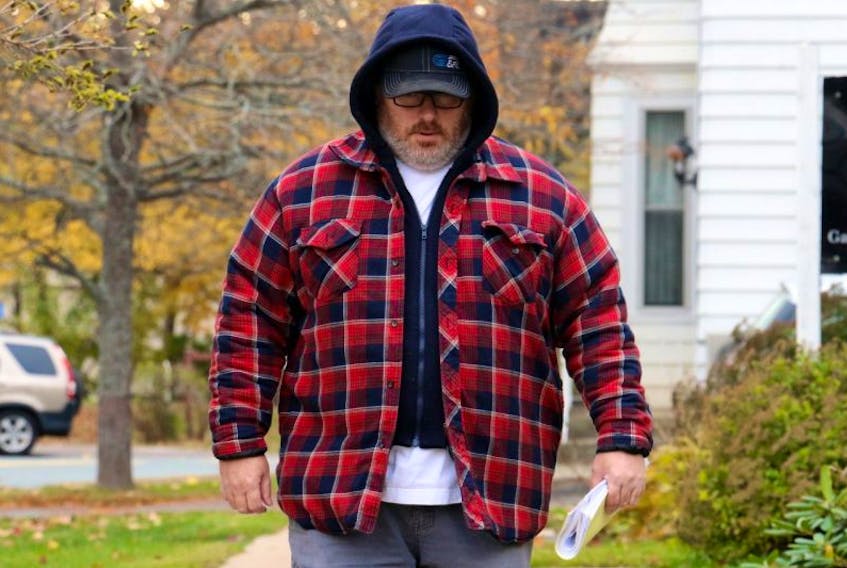A former paramedic serving federal jail time for sexually assaulting three patients in his care has been denied day parole.
James Duncan Keats, 51, has been in jail since being convicted in two trials in 2015. He was sentenced in Windsor provincial court to four years in jail for raping a 71-year-old woman while attending to her in her Hants County home in 2013, and sentenced in Nova Scotia Supreme Court in Halifax to 30 months in jail for fondling two other patients in the backs of ambulances in Halifax County that same year.
The sentences were initially made concurrent, but the Nova Scotia Court of Appeal ruled last month that they should be served consecutively.
In a written decision of the Parole Board of Canada dated March 20, a panel said that while Keats was scored on two assessments as being at a low risk to reoffend within three years, a pre-release psychological risk assessment measured his static risk as average and his dynamic risk and treatment needs as moderate.
“The psychologist expressed her opinion that you should be referred to the Moderate Intensity Sexual Offender Program in the institution,” the decision said. “As your correctional plan has not required such participation, file information reports that you remain an untreated sexual offender.”
The decision noted that Keats was described byCorrections Services Canada
as being in the “beginning stages of understanding your offence cycle. CSC indicates that until recently, you maintained your innocence for your offences. It advises that you continue to minimize your behaviour and frame your actions in such a way that you were operating within your role as a paramedic. The report goes on to say that your community supports continue to believe that you are innocent of all of your convictions.”
The nature of your current offences are considered by the board to be indicators of the type of crimes you could commit should you reoffend.
Parole Board of Canada ruling
The report also noted that halfway houses “are not supportive of your conditional release.”
The CSC recommended to the parole board panel that Keats’ application be denied.
“In so doing, file information indicates that it has considered your lack of accountability, lack of any real insight into your sexually deviant behaviour, lack of any significant effort that you have put forward, and lack of sustained change that will mitigate your risk of reoffending to a level which would be manageable in the community. Local police concur,” the panel wrote.
It also said that while Keats had no criminal history prior to his convictions, “your current offences are considered serious, violent and, in one case, are considered to have led to serious harm — although the board would argue that all of your offences have led to serious psychological harm to your victims. The nature of your current offences are considered
by the board to be indicators of the type of crimes you could commit should you reoffend.”
Keats’s only previous problems with the law were traffic tickets.
“Given the limited progress you have made against your risk factors, the board believes that your current level of insight into your criminality and understanding into the factors and stressors which impact your level of risk is disproportionate to the benefits you could gather, at this point, in the community,” the panel wrote.
“The board believes that you need to demonstrate sustained progress towards positive change with respect to your risk contributors before it may determine that the benefits of a gradual reintegration into society does not outweigh the predominant consideration of the board's mandate: the protection of society.”
The decision also noted that Keats had two institutional charges: one in March 2017, when a false wall was discovered in his cell, and another that June when he tried to steal a screwdriver bit from the shop. Both charges were dismissed due to technicalities.








